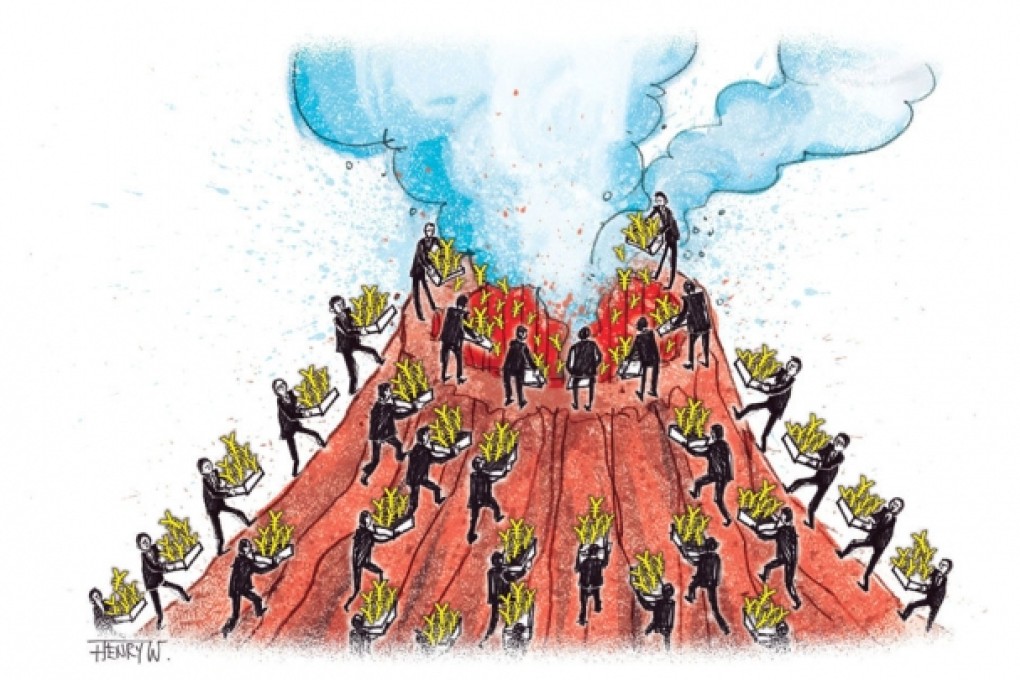China's growing mountain of debt
Zhang Monan says even as financing for local governments grows in size and variety, they still struggle to repay debt and support spending. It's time for China to get its fiscal house in order

In the coming years, China's government will have to confront significant challenges to achieve stable, inclusive and sustainable economic growth. But, with mounting fiscal and financial risks threatening to derail its efforts, policymakers must act quickly to design and implement prudent policies.
The most significant medium- and long-term threat lies in the system of implicit guarantees that Beijing has established for local-government debt. In the wake of the global financial crisis, local governments borrowed heavily from banks to support China's massive stimulus programme, amassing 10.7 trillion yuan (about HK$12.5 trillion using exchange rates then) worth of debt by the end of 2010.
China's leaders hope to control potential risks stemming from local-government investment vehicles by limiting bank lending. The balance of bank loans to these vehicles increased only slightly last year, to 9.3 trillion yuan (HK$11.6 trillion), from 9.1 trillion yuan in 2011. And the China Banking Regulatory Commission has called on banks to retain last year's loan quotas for this year, and to ensure that the overall balance of loans to such instruments does not exceed the 2011 year-end total.
But these financing vehicles obtained a massive amount of financing last year by issuing bonds and trust loans. This includes 250 billion yuan in local-government bonds, 636.8 billion yuan in urban-investment bonds, and technical co-operation trust-fund projects totalling 501.6 billion yuan, representing year-on-year increases of 50 billion, 380.6 billion and 247.9 billion yuan, respectively.
Even with these funds, however, local governments have struggled to make ends meet. Tax reforms have caused their share of national fiscal revenue to decline steadily, from 78 per cent in 1993 to 52 per cent in 2011. Over the same period, however, their share of total government expenditure rose from 72 per cent to 85 per cent.
The need to fill the gap has forced local governments to depend on land sales. But land-related income has plummeted over the past two years, from 32 per cent of total revenue in 2010 to 20 per cent last year. Measures mandated by Beijing to control surging real estate prices will continue to reinforce this trend, increasing pressure on local-government revenues.